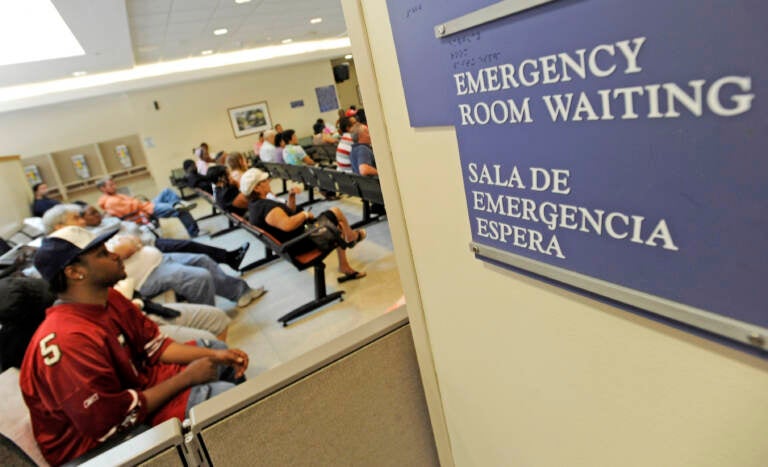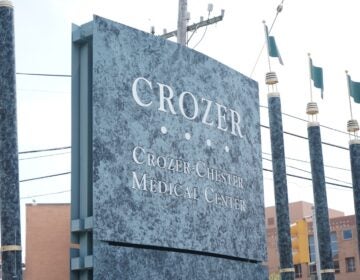What’s Behind Health Care Shortages?
We look at this, and other, shortages plaguing the world of medicine, from medications to donated blood.
Listen 51:14
FILE - In this July 30, 2009 photo, patients wait in the emergency room at Cook County Hospital in Chicago. Senate Democrats passed a landmark health care bill Thursday, Dec. 24, 2009, that could define President Barack Obama's legacy and usher in near-universal medical coverage for the first time in U.S. history. (AP Photo/Paul Beaty, file)
If you’ve tried to book a doctor’s appointment lately, chances are, it’s been challenging. Many practices are not taking new patients, or open slots are weeks or months away. For some patients, it’s meant gritting their teeth through pain and anxiety.
For others — like people living in rural areas or trying to see in-demand specialists like psychiatrists or neurologists — it can feel almost impossible to get an appointment at all, posing real threats to their health. Medical organizations warn that we’re experiencing a physician shortage — and that things will only get worse.
On this episode, we look at this, and other, shortages plaguing the world of medicine, from medications to donated blood. We investigate what’s causing this scarcity, and some potential solutions. We’ll hear stories about the surprising origin of the physician shortage, and why we still have unemployed MDs sitting at home; what’s behind the recent shortages of several high-profile medications; and how researchers are trying to address the chronic shortage of donated blood.
Also heard on this week’s episode:
- It seems like we’re constantly hearing about physician shortages — both present and future — including one dire prediction that we’ll be short by as many as 124,000 doctors by 2034. Reporter Liz Tung investigates what’s behind the widely touted shortage, and whether America’s unemployed MDs could be a solution.
- Drug shortages have been affecting everything from antibiotics to cancer treatments recently. We talk with Erin Fox, associate chief pharmacy officer and senior director of Drug Information and Support Services at University of Utah Health in Salt Lake City, about what’s behind these shortages and potential solutions. Mairead McInerney talks about the stress of having to change course with her chemo treatments for breast cancer not once — but twice, because of drug shortages.
- Monkeys are about as close as scientists can get to testing something on humans and have helped researchers develop treatments for diseases like Parkinson’s, sickle cell disease, and COVID-19. But now, monkeys are in very short supply, which has had a big impact on research. Alan Yu reports.
Segments from this episode
WHYY is your source for fact-based, in-depth journalism and information. As a nonprofit organization, we rely on financial support from readers like you. Please give today.






